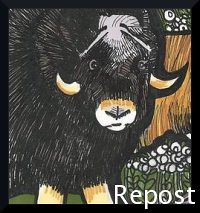 Ecology is a study of interactions or relationships between organisms and the environment; the connectedness between living systems and non-living systems on the Earth. Ecology is, in a sense, a historical field, founded upon the Earth's far reaching and ever evolving natural history.
Ecology is a study of interactions or relationships between organisms and the environment; the connectedness between living systems and non-living systems on the Earth. Ecology is, in a sense, a historical field, founded upon the Earth's far reaching and ever evolving natural history.
The term ecology comes from the Greek root words oikos logos, literally "the study of household," first combined by Ernst Haeckel in 1866. Haeckel was referring to the interactions within the house of nature, and we have used the word ecology (translated from the German Oekologie or Ãkologie) to describe complex systems of life both extant and extinct.
The shear range of fields that the term "ecology" encompasses is staggering. Why? Think about how many levels of biological interaction can be described by focusing on one animal, a red panda (Ailurus fulgens).
At the individual level, the red panda itself, an ecologist could look at a particular panda's ability to thermoregulate, or absorb and expel heat within its environment. Within a population of red pandas, the next step up, an ecologist could analyze the gene flow within the population and how this particular group of red pandas is distinct in adaptations from a neighboring one.
Communities of organisms are composed of two or more populations. At this level, an ecologist could take a closer look at the cohabitation of red pandas and giant pandas in a certain area, studying how the animals share food and space.
The distinction between a community and an ecosystem is slight, but essential to understand. While a community describes interaction between organisms in an area, an ecosystem describes the entirety of the area, including chemical and physical factors. Research at this level would concentrate on things like nutrient cycling (i.e. the phosphorus or carbon cycle) or the distribution of energy within the slope forests of the Himalayas.
As we expand, things become more generalized. We are not longer talking specifically about the red panda, but about the living/nonliving system of which the red panda is a part. Landscape ecology looks at a certain heterogeneous conglomerate of ecosystems, their composition ("patches" of forests, plains, etc.) and the interaction between these ecosystems. (I will zero in on this level and be a bit more descriptive in a later post.)
A geographic ecologist (who studies regions of interaction) might take a look at the geologic history of an island or lake and try to explain the distribution of organisms in that area due to the large scale geologic activity or other environmental variables. R.H. MacArthur (an associate of E.O. Wilson) thought that geographic ecology could be described as the "search for patterns of plant and animal life that can be put on a map."
Finally, ecologists can look at biological interaction through the widest scope by analyzing the biosphere, or the entirety of life's systems on the globe. Ecology at this level usually involves major atmospheric phenomena like the long term effects of climate change or El Niño on the Earth's living systems.
At each of these levels of organization, there are near infinite examples of questions to ask about interaction. Those are just a few examples. Additionally, we have not even considered narrowing the focus to the levels of physiological, cellular and molecular interaction.
In the next posts in the Basic Concepts: Ecology series will discuss terrestrial biomes, but in order to appreciate the distinction and formation of these regions across the Earth, we'll delve into some basics about climate distribution and soil composition.
- Log in to post comments
thanks
Now that the battle about whether AGW is real or not is pretty much won, the next battle will be about the effects it will have on ecologies and whether they matter or not. Any posts you can do on that topic will be appreciated, as well as any suggested reading material.